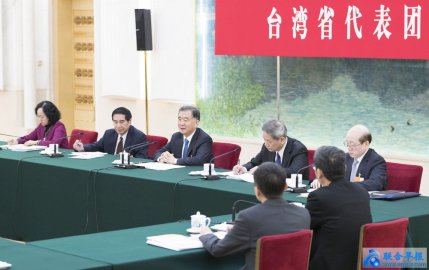Eating with mainland friends in the restaurant that day, the boss's Hongliang voice asked the guests next to the guests: Should the vegetables eat mainland girls or hollow vegetables?The friends of the mainland beside me were confused and stared at me in doubt. I could only look down at a slightly embarrassed to eat, and I do n’t know how to explain to my friends.There are more than one similar situation.A few months ago, a friend of a mainland business community who often traveled on both sides of the Taiwan Strait took advantage of the gap in the dinner and asked me: Taiwan News often wrote lsquo; I would like to ask, I just want to ask, the Communist Party really makes Taiwanese media hate it so muchIntersectionHave to take out lsquo; kick rsquo;?
My friend's inquiries made me cry and laugh for a while. I had to quickly explain to him that the so -called kicking was a homophony that was spoken by Minnan, that is, asking someone or a unit to explain, and please do not want to be wrong.
However, whether it is the mainland girl or the Communist Party, these words that are often visible in Taiwanese society and the media may not have hostility to the mainland, but the traditional continuity, or the new vocabulary of the media.However, in life, we have subtly infused our negative perception of the mainland and formed negative energy.
As a Taiwanese, we may wish to think like this: if we go to the mainland restaurant to eat, there will be a dish named Taiwanese girl, or the mainland media also creates a new term called Kou Terrace.Is it comfortable to listen to our ears?
There are still many daily usage that can easily cause misunderstandings and even cause hatred opposition, especially the online world.For example, young Taiwanese netizens like to use 426 (referring to Aku) to deliberately degrade the people of the mainland; use human head paper or grass paper to indicate the RMB, as if the NT $ is superior. This mentality must not be.
Of course, mainland netizens also have the use of people who degrade the people of Taiwan or Taiwan. For example, they laughed at the Taiwanese people as Bay, and there are irony like naive children. Some people say that Bay is a special meaning that will be installed;A bit awkward is called the Taiwanese cavity, and the subtext sounds a bit a little maiden.
The above -mentioned daily term, the psychological distance of the people on both sides of the strait virtually, may come from discrimination and prejudice, or it may only be inadvertent, but they all cause damage.This not only intensifies the emotions of the mainland's vengeance, Taiwan's anti -China anti -China, but also completely helpless the misunderstanding between the two sides of the strait, but instead promotes politicians who use cross -strait confrontation to obtain private interest.Recently, the distant polls show that up to 53%of the young generation intends to go to the mainland for development. If the mood of the mainland's folk hatred is high, will you rest assured that your next generation is working hard in the mainland?
Improve cross -strait relations can start with yourself, and use words as an example.Tsai Ing -wen handles the Hualien earthquake, expressing concern in simplified words, announcing that there is no distance between the disaster relief on both sides of the strait. Compared with the Liaoning Luke Group fire burning incident, it is more humane.
At the time, cross -strait relations are low, officials do not communicate with each other, and the communication and understanding of folk society has become the most important lubricant on both sides of the strait, and the cornerstone of the friendly interaction of social friendship between cross -strait society.Although daily terms are just small measures and habits, they may have a butterfly effect -like influence; consolidate the mainland's hearts of goodwill in Taiwan, and the formulation of policies in the mainland will also observe public opinion. In this way, Taiwan's people's livelihood economy will beAnd national security will be more secure.
(Author Cai Zhihong, a professor of honorary lectures at Daye University and consultant of former Taiwan Sea Foundation)



